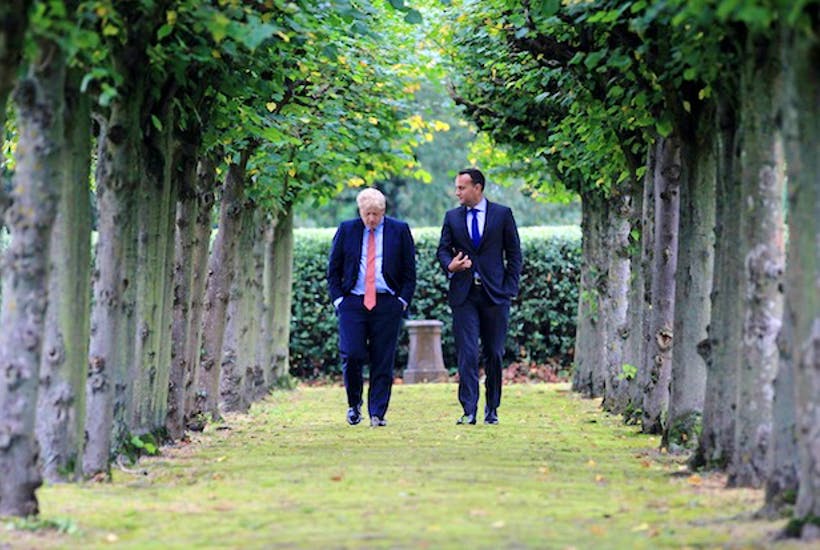Is all hope lost that a Brexit deal can be agreed before October 31? That’s been the mood music coming from both the UK and Brussels in recent days. However, Boris Johnson and Leo Varadkar have this afternoon made a joint statement making clear that they haven’t given up on agreeing a deal just yet. After holding two hours of talks in a Cheshire countryside bolthole, Johnson and Varadkar released a joint statement in which they said that they could both ‘see a pathway to a possible deal’:
‘The prime minister and taoiseach have had a detailed and constructive discussion.
‘Both continue to believe that a deal is in everybody’s interest. They agreed that they could see a pathway to a possible deal.
‘Their discussion concentrated on the challenges of customs and consent.
‘They also discussed the potential to strengthen bilateral relations, including on Northern Ireland.
‘They agreed to reflect further on their discussions and that officials would continue to engage intensively on them.
‘Following their discussions the taoiseach will consult with the Taskforce 50 and the Brexit secretary Stephen Barclay will meet Michel Barnier tomorrow morning.’
Now clearly a pathway to a possible deal is someway off agreeing a deal. However, there were figures in government who believed that today’s meeting could spell the end of the discussions. That the pair have agreed to keep speaking – and gone further by hinting at a small ray of light in terms of a deal – is noteworthy. The question: is this simply part of an ongoing blame game or is some form of agreement now possible? There is still strong pessimism on the UK side that a deal will be agreed. Meanwhile, it remains in the interest of both sides to pitch themselves as the reasonable party who cannot be blamed for talks breaking down.
As for what a ‘pathway to a potential deal’ looks like, it much depends on which side has moved. The UK government has previously suggested privately it could move on a few things that were in its initial offer – such as the terms of any Stormont lock (though the DUP could refuse to play ball). What Johnson allies are insistent on is that the British prime minister cannot move on UK as a whole remaining in a single customs territory – one in which the UK (including Northern Ireland) leaves the customs union. This is a proposal that Varadkar has previously made clear he finds troublesome. A deal is only likely if either Varadkar comes round to two customs territories in Northern Ireland – or Johnson moves on his red line.
This article was originally published on The Spectator’s UK website.


























